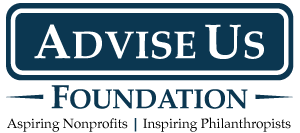Recently, the Chronicle of Philanthropy released their Philanthropy 400 that included a number of high ranking donor-advised funds. This led to positive and negative reviews of the growth and place of donor advised funds in charitable giving. It’s a great time to take up this discussion because donor-advised funds have reached a crossroads in the charitable community – and we must choose their future path.
At its essence a donor-advised fund is uniquely able to separate the tax efficient portion of charitable giving from the granting portion of the gift. Often marketers of donor advised funds – coming from professional investment backgrounds – like to sandwich these two features around what happens between them (i.e. investing the funds that have already been contributed to charity) to create what I call the “features sandwich” of donor advised funds – Give. Grow. Grant. The discussion of donor advised funds today has too much energy placed on the features of investment and tax deduction. While investment and tax deduction features are essential to planning the gift, they are not the benefits donors receive from a fund. Changing the “grow” of the features sandwich to “guide”, and moving the discussion from investments to stewardship, sets us on the path of reclaiming the donor-advised fund as a leading gift planning vehicle focused on charitable intent.
Give. Guide. Grant. This “benefits sandwich” focuses charities (which all donor-advised fund purveyors are legally required to be) on providing unique benefits as stewards and grant makers. It offers us a chance to discuss the following incredible gift planning benefits that donor advised funds can offer donors:
-
Timing – The benefit of timing the gift for tax purposes and timing the gift for grant purposes is central and unique to donor advised funds. From this benefit, charities are able to engage donors in a way that the other benefits become visible.
-
Centralization – The benefit of centralizing giving allows donors to consider one gift for tax purposes. Donors can choose assets (see below) or establish a granting amount and be worried about the technicalities once. Giving now becomes a thoughtful plan focused on giving (where donors can be helped with guidance) as opposed to responding in a haphazard fashion to a multitude of requests while worrying about tax implications.
-
Efficiency – The benefit of giving centralization has its roots in giving efficiency. Once a donor is able to give once a year according to a plan, the case for giving from assets, and not income, becomes a more viable option. Since assets make up the majority of the net worth of most major donors, the switch from income-based to asset-based giving is the first step in moving donors towards major gift giving. Asset-based giving offers an additional, and often greater, charitable impact.
Donor advised funds are at a crossroads. If we continue down the professional investment-oriented path that many have taken over the past two decades, we will place the viability of the giving vehicle at risk. However, if we move from these tactical product features and transaction-based discussions of donor-advised funds to a more philanthropic view of their giving benefits for donors and charities alike, we have a chance to show that donor-advised funds are worthy of the special tax benefits they enjoy. Benefits come with responsibilities. For the sake of better philanthropy now is the time to show we are responsible.
____________
Andrew Hibel serves as President and is the Founder of The Advise Us Fund. He is also Chief Operating Officer and Co-Founder of HigherEdJobs. Andrew holds a B.A. in Economics and a M.Ed. from the University of Illinois and a J.D. from Indiana University, Indianapolis. He has been a planned giving officer for Penn State University and Advocate Charitable Foundation and served as Director of Gift Planning and Estate Administration for the Jewish Federation of Metropolitan Chicago.
The information in this blog post is general and educational. It is not intended nor should it be construed as legal, tax, investing or financial advice. Individuals should consult with their own advisor about charitable giving arrangements The Advise Us Fund® may describe.

